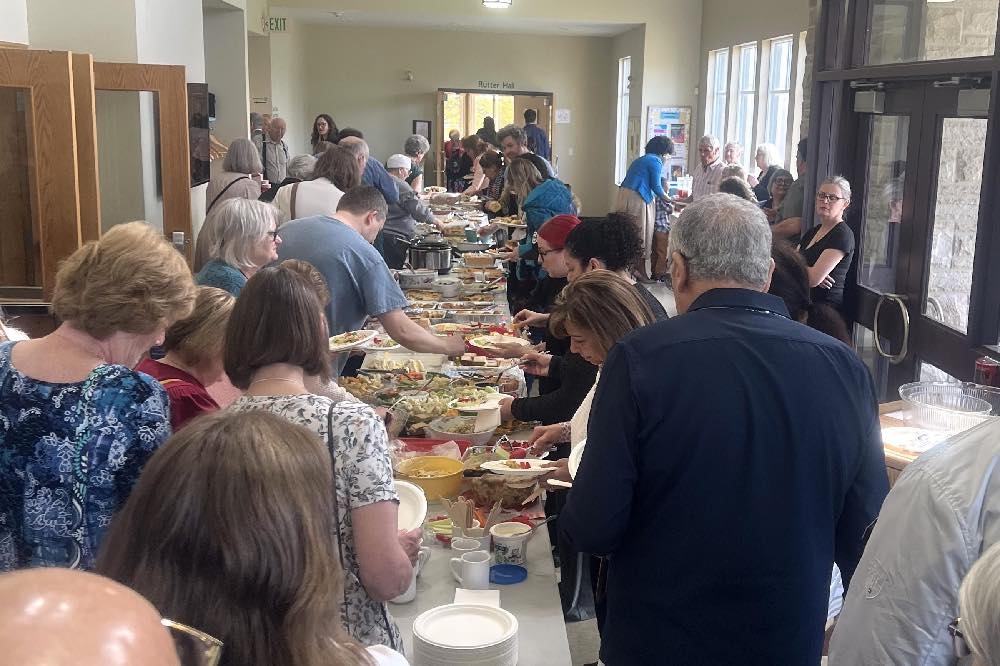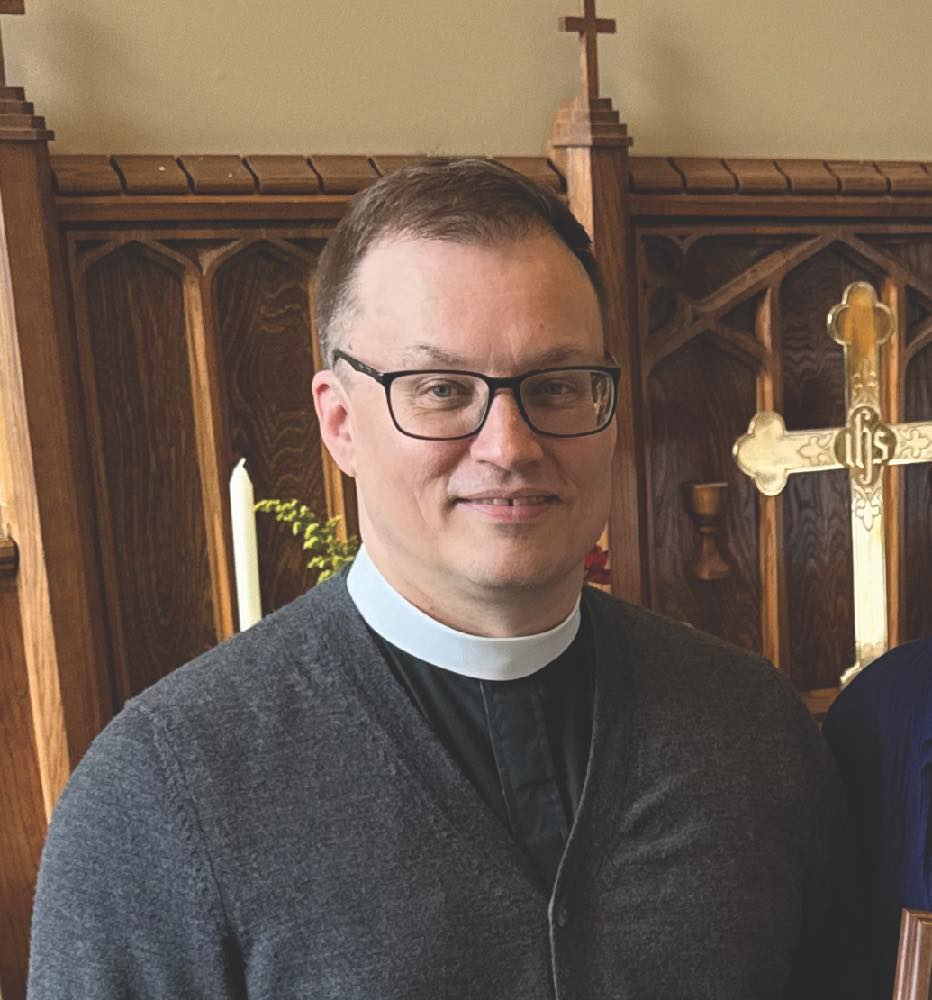“How good and pleasant it is when God’s people live together in unity!” These words from Psalm 133 found joyful expression at St. Paul’s, Kanata this May. In what has become an annual event, the Coptic Church of St. Mina, Cyril, and St. Karas (SMCK), the Anglican Church of St. Paul’s, and the congregation of Catch the Fire (CtF), came together for a potluck luncheon. While enjoying traditional Egyptian fare from the Coptic church, and more familiar western cuisine from St. Paul’s and CtF, members of all three communities enjoyed an atmosphere of growing friendship and cooperation.
The event is the culmination of efforts by each congregation to grow in love and partnership with our fellow Christians. Starting in 2017 with CtF, and in 2021 with SMCK, St. Paul’s has shared its building with each congregation. Each exercises their own worship and ministry, and each enjoys office space for their administrative needs. In return, St. Paul’s receives help in covering its financial obligations. But these relationships are about so much more than a blessing of space and finances: they have brought about a flourishing of spiritual vitality and mutual care.
For St. Paul’s, one of the spiritual benefits of this partnership is regular exposure to church traditions very different from our own. Holy Week, for example, revealed both the unity and diversity of Christian traditions in a striking way. With some creative scheduling due to the Coptic season overlapping with the Anglican, the people of St. Paul’s and the SMCK were encouraged to visit each others’ services to experience them for themselves.
As a church founded in first century Egypt, Coptic musical and linguistic traditions are very different from Anglican practice. However, the points of unity were just as profound. The Nicene Creed and Lord’s Prayer were immediately recognizable to all, and the Eucharistic Prayer pointed to the common trust we have in Christ and in his sacraments. Mutual visitation has only increased the sense of unity which Jesus has preserved within the diversity of Christian expression.
Catch the Fire is distinctive in a different way. Founded in 21st century Canada, it embraces a Pentecostal tradition of spontaneity and liveliness in worship. Its members and St. Paul’s parishioners often attend one another’s services, and they pray for each other regularly. Jeff Duncan, Catch the Fire pastor, sees this as one of the greatest benefits of cooperation: “I remember the first time I saw a St. Paul’s bulletin and our congregation was listed as a regular prayer request. I was deeply touched.”
This commitment to prayer, along with social gatherings like the potluck, has been a powerful sign of care for one another. With each passing month, parishioners have grown more committed in friendship and in appreciation for each other’s way of living out Christian life. Fr. David Azer, priest at SMCK, echoes this: “The blessings have been many. Our two communities have developed genuine friendships and deeper understanding of Christian unity. Joyful moments—like the potluck and celebrating feasts together—stand out.”
None of this cooperation has resolved all the barriers to visible unity between the churches. There remain differences that prevent sharing some ministries and sometimes even sharing the Eucharist. We’re still saddened by these barriers, as they still detract from our common witness to the world. Yet, the simple commitment to deeper friendships, greater understanding, and mutual appreciation has laid the foundation for that deeper unity Jesus calls his church to embrace. In God’s grace, it is something we should all continue to strive for.


Saint Mary’s Church, Westmeath — Deanery of the Northwest